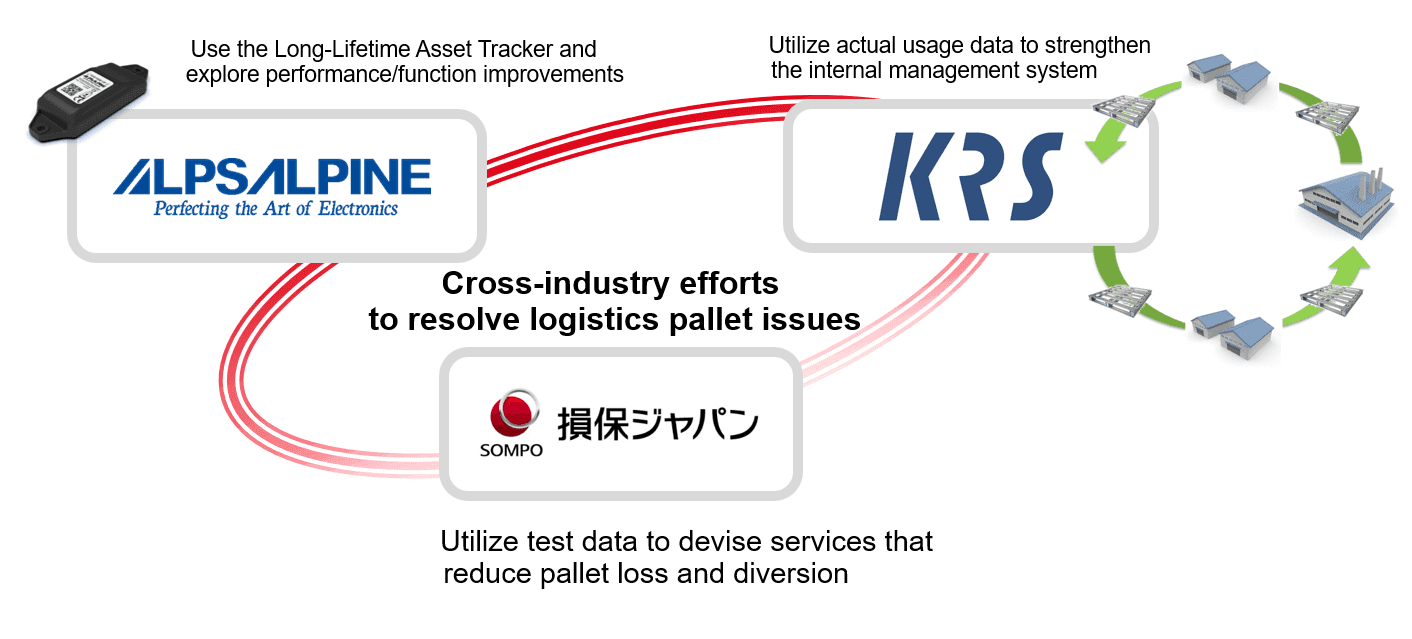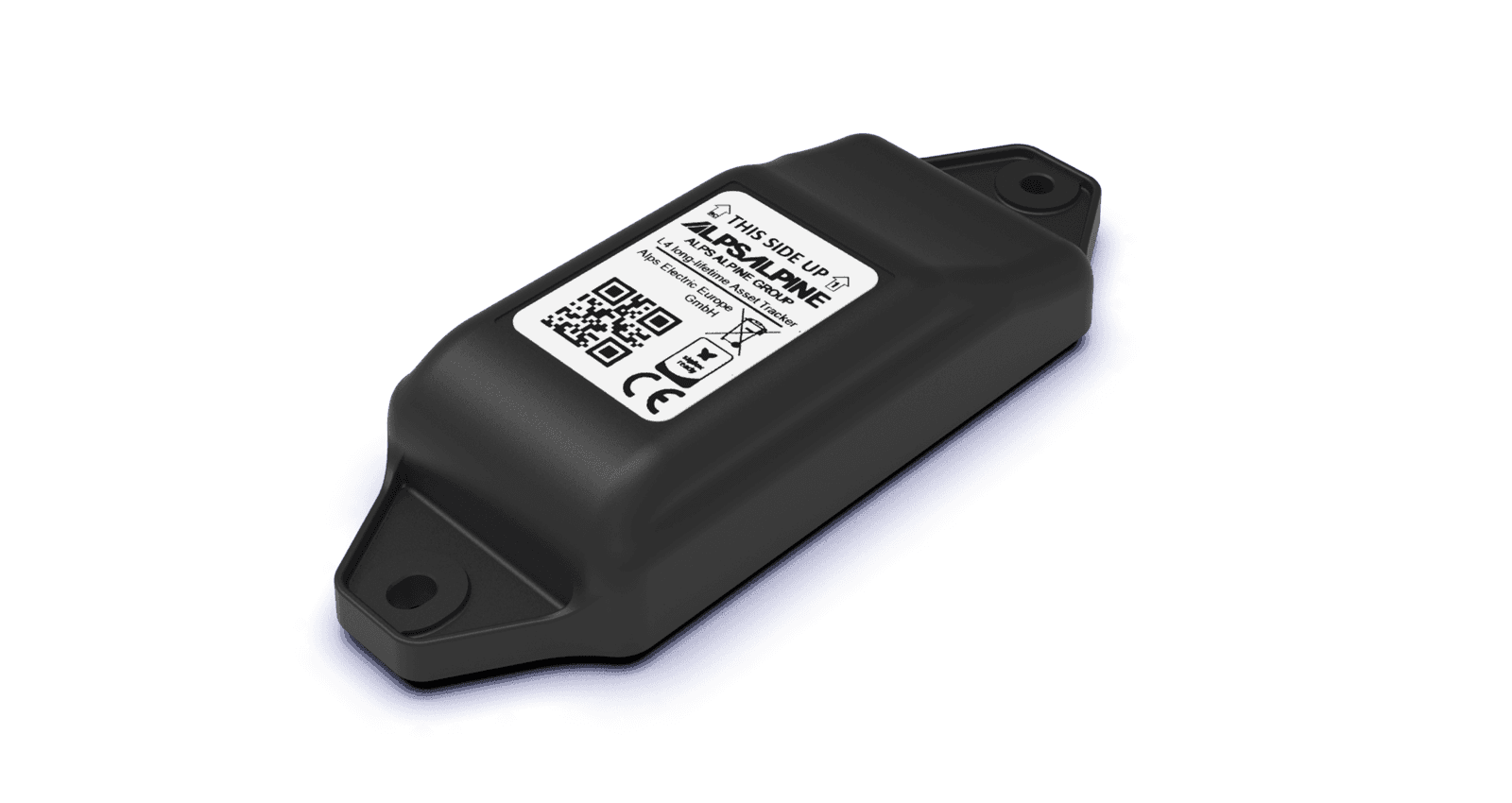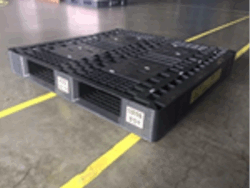News
Alps Alpine, KRS and Sompo Japan Launch Co-creative Efforts to Address Lost Pallets in Food Logistics
Information listed here is shown as of the date of release. Please note that production, sales and programs may be terminated or contents such as specifications and prices may be modified by the time you read this information.
Feb 18, 2021
Alps Alpine Co., Ltd. (Tokyo: 6770; President & CEO: Toshihiro Kuriyama) has teamed up with K.R.S. Corporation (Tokyo 9369; President and Representative Director: Hideaki Nishio) and Sompo Japan Insurance Inc. (Shinjuku-ku, Tokyo; President: Keiji Nishizawa) to address the problem of pallets going missing in logistics operations. The co-creative activities began in December 2020.
1. Background and Purpose
Pallets used to carry and transport goods are essential for
achieving efficiency in logistics operations, such as sorting with the aid
of a forklift. In Japan alone, several hundred million pallets are estimated
to be in circulation each year, helping to improve job efficiency in cargo
handling, transportation and warehousing, as well as to ease the effects of
a worker shortage. However, companies in a wide range of industries that
employ pallets for logistics, storage and manufacturing face a common
dilemma – pallets go missing. As a result, companies bear ongoing losses due
to depletion of assets and higher rental expenses that affect transportation
efficiency and lift costs.
The co-creative activities here are a cross-industry effort to
resolve the above logistics issues not only by overcoming obstacles faced by
individual pallet users, but also by contributing to greater efficiency in
the logistics industry as a whole.
2. Outline of Activities
Alps Alpine’s Long-Lifetime Asset Tracker1, an IoT
device for remote tracking of logistics assets, will be attached to around
200 pallets administered by KRS to undergo demonstration testing.
Positional information, movement history and other operational
data for pallets will be collected from the tracking devices to identify
pallets presumed to be missing within, or diverted to, unanticipated usage
channels or storage locations, and to understand and analyze usage history
and reasons for the loss or diversion of pallets. The aim is to apply data
obtained through the testing to resolve issues relating to pallet use.
<Co-creation Framework>

<Demonstration Testing Period>
Six months starting December 2020


3. Plans
Alps Alpine’s role in the co-creation is to affix its
Long-Lifetime Asset Tracker to pallets used in food logistics, an
application for which the device has yet to be used. The pallets, generally
measuring 1100 × 1100 × 144mm, are smaller than other pallets the device has
been attached to previously and they are carried in stacks of multiple
pallets. A unique method was devised to install the tracking devices in the
limited space available on food logistics pallets without altering the
device size or shape.
Through the co-creation, Alps Alpine looks to expand sales to
the food logistics market by exploring issues and solutions for
implementation of the Long-Lifetime Asset Tracker within that sector.
Know-how acquired will be applied to develop markets further with aims to
improve the transportation efficiency of corporations, in turn reducing the
energy requirement for transportation and helping to reduce consumption of
forest resources, as well as oil and other fossil fuels.